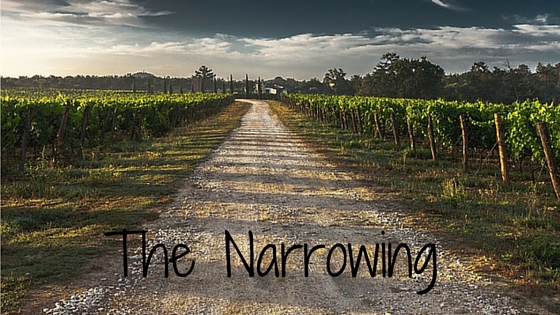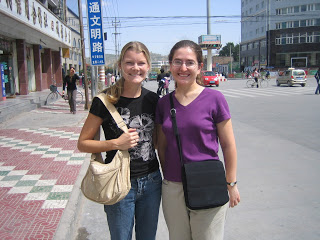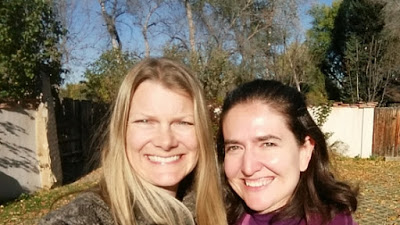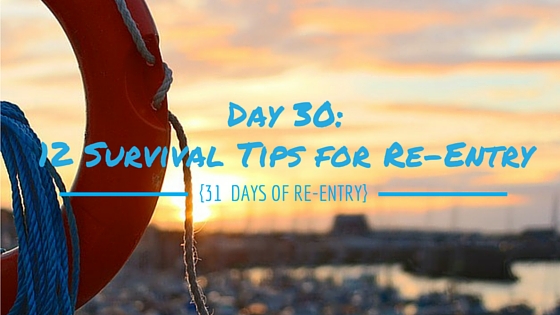I sway with my 16-month-old daughter, singing her the same two songs I always sing before putting her in her crib, “Jesus Loves me” and “I Love you Lord.” She reaches up, her face two inches from mine and touches the tips of my eyelashes, then my ears and nose, with her chubby little fingers. She smiles her gap-toothed smile, her wispy blond hair bits escaping from her tiny ponytail on top of her head and falling across her eyes. I lay her down and quietly tip-toe out of the room. My three-year-old son has already quieted down next door and I no longer hear him singing and making noises.
I push the button on the electric tea kettle, rummage through the cupboard for a tea bag, plop it in the largest mug I can find, pour the steaming water into the cup and sit down here to write.
Right now, in this moment, I am thankful. I am thankful for the sun streaming in through the too-many windows and creating bright geometric shapes on the couch. I am thankful for the tiny hand prints on the windows because it means that there are tiny people that live in my house. I am thankful that both children are sleeping at the same time.
I am thankful for the Colorado sunshine that has proven to be as dependable as promised thus far. After living in Chicago for nine years total, I am thankful for the change. Though Chicago had its own appeal–the diversity, culture, movement, rhythm, promise and pace, right now I am thankful to not be there.
Growing up in Florida, my soul seems to have been conditioned to need sunshine more than most. I am a sun worshipper. And so Chicago winters would drill holes in my soul through which joy seemed to seep out during the months of January through May. Though I know that joy is not dependent on circumstance, I have also found God to be someone who graciously gives us even creature comforts at times when we most need them. And He knew that I needed a little sunshine for my soul.
After living in a third floor apartment with two tiny children, with laundry in the basement, no garage, dishwasher or yard and no ability to control our own heat, I am grateful for these new luxuries. Instead of making 12 trips to the basement in one week, I can now wash clothes at my leisure, watching as my children arrange stuffed animals for tea parties, collect miscellaneous toys in any receptacle possible and scatter cheerios and raisins on the carpet.
A garage means I won’t have to shovel snow off my car in the mornings. I can put my children in the car shoe-less, and I don’t have to haul them back inside if I forgot something (or leave them briefly and fear that someone will call child services on me). And I can open the back door after naps in the afternoon for them to run outside in our backyard that is exactly the right size for our family right now.
Our neighborhood is so dark in the evenings that we missed the turnoff the first few times we came home at night. We can actually see stars. Chicago’s skies were always pink and I may have seen three stars on a good night. And there was constant noise. Now, we can hear birds, crickets and the distant whinny of horses from the back porch. A smile creeps across my face on days sitting outside when the scent of horse manure drifts into our yard because it means that we are not in the city.
The mountains stand serenely in the background of most of daily life. It caught me off guard the first time I came out of Target to have such a stately background for a common store. I’m surprised I haven’t gotten into a car wreck yet from gawking at them stretched across the horizon as I drive toward home. They are a constant reminder of my smallness. I am thankful for the awe that comes in feeling overtaken by beauty, overcome by God’s creation.
As my parents did not want to live in Chicago and we did not want to live in Florida, Colorado was our compromise place. My parents are volunteer rangers at Rocky Mountain National Park in the summer. They now live in the mountains and to get to grandmother’s house we not only have to go over the river and through the woods, but over the highest highway in the country. Instead of rush hour being our reason for running late to their place, it is more likely elk or moose or the tourists stopping traffic to take pictures of them that causes our delay.
I am thankful to be living in the same state as my parents for the first time in 18 years. Now that I am a mom myself, I seem to need them even more.
After writing about The Narrowing in my previous post, this time of giving thanks is a load lifter. Jesus, thank you for blessing me over and above all that I could have ever asked or imagined. Thank you for your peace that passes all understanding. Thank you for your forgiveness of me before I’m even willing to forgive myself. I know that one day I can expect suffering, sorrows, trials, sickness and death, but today is not that day.
Thank you for this day.
Lately, I have been trying to start the day with a better attitude and have been singing aloud,
Let us rejoice, let us rejoice and be glad in it and be glad in it.
This is the day that the Lord has made, let us rejoice and be glad in it. Thank you, Lord, for your small and large gifts to us in this day.
What is the largest thing you can give thanks for today? The smallest?
Linking up with Thankful Thursday











